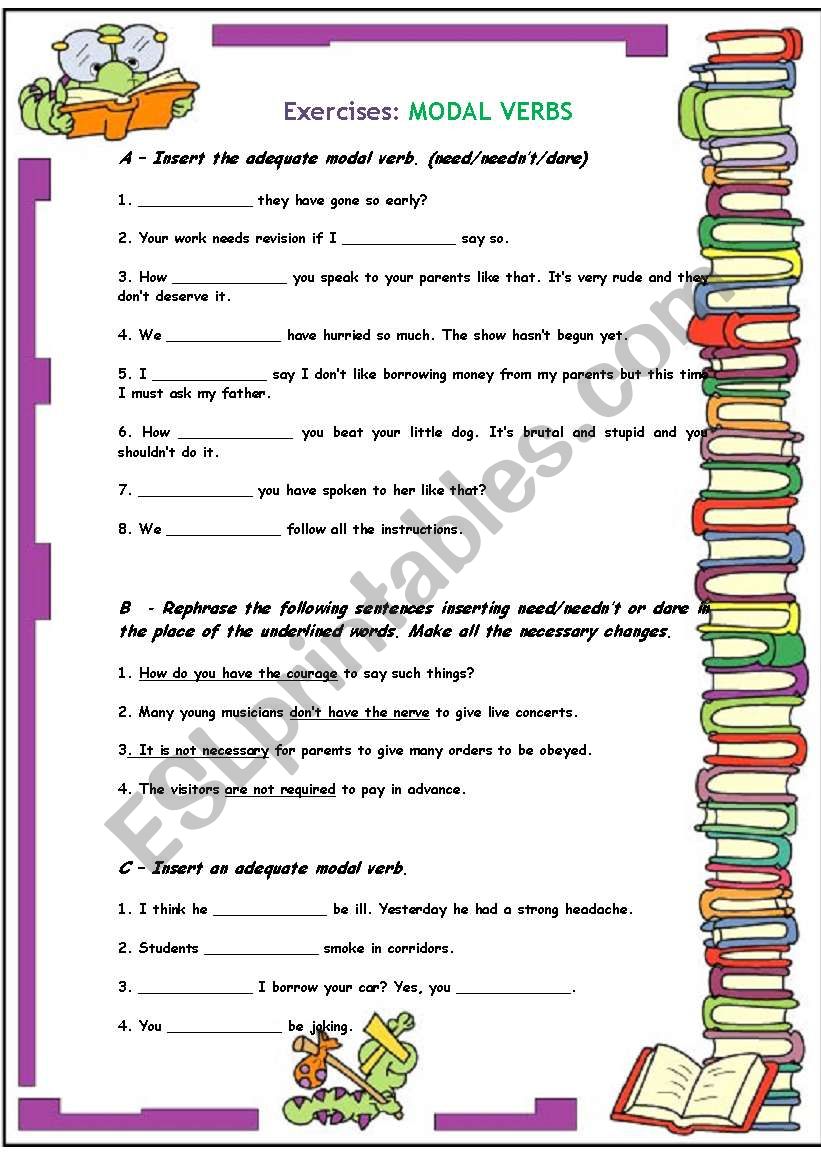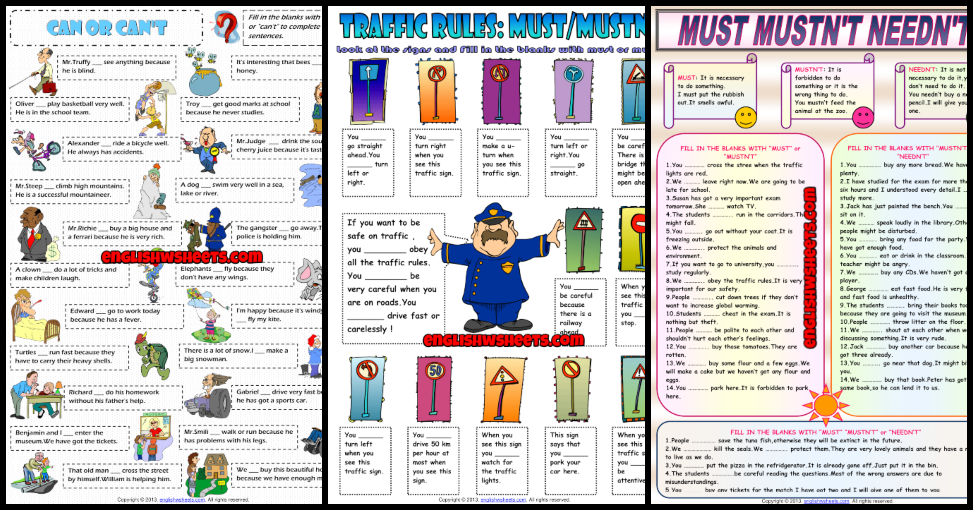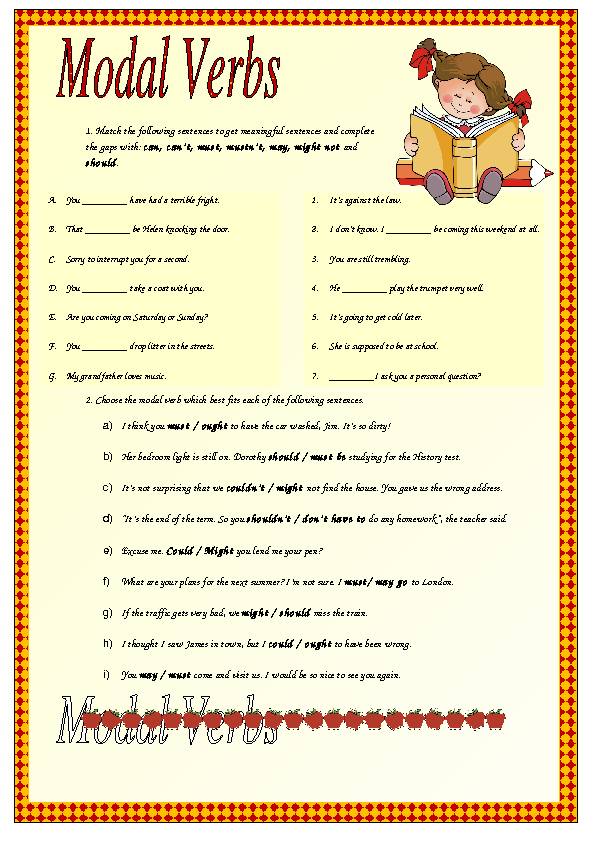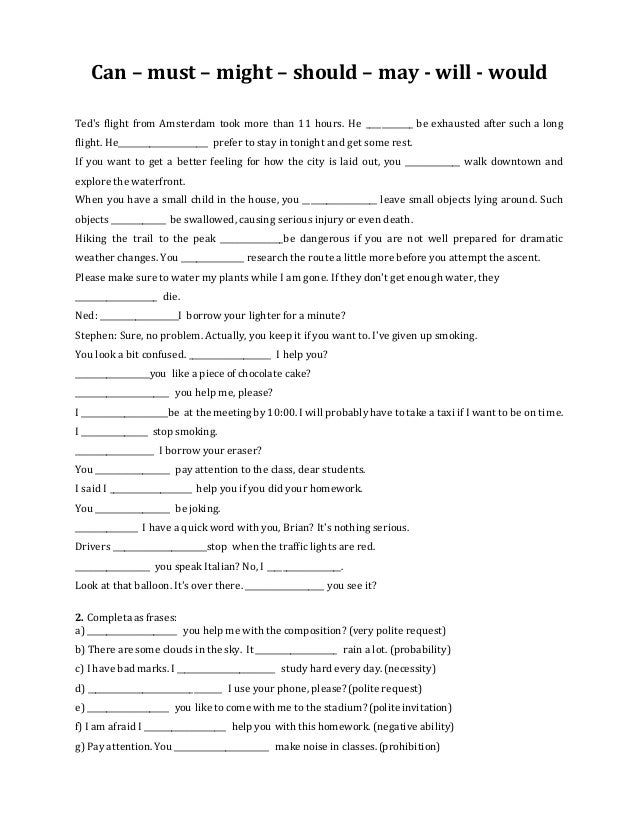

Normally modal verbs cannot work alone and must work with the main verb. Modal verbs are one of the types of helping verbs (also known as "auxiliary verbs"). When a helping verb is used to express possibility, conditionality, necessity, obligation, ability, probability, or wishful desires then that verb is known as a Modal Verb. Helping verbs are further of two types, that is Primary Verbs and Modal Verbs. As we are familiar with verbs that are of two types, that is main verbs and helping verbs (also called auxiliary verbs). But what do modal verbs do? Why is it essential to have a modal verb in the sentence? So here in this article, we will get answers to all our questions. I thought I saw Adnan this morning but it couldn't have been him – he's in Greece this week.ĭo this exercise to test your grammar again.Modal Verb: As we know verb is used to describe an action. We use can't have and couldn't have + past participle when we think it's not possible that something happened. Could have is also possible in this context but less common.

Police think the suspect may have left the country using a fake passport. I think I might have left the air conditioning on. We can use might have or may have + past participle when we think it's possible that something happened. The door was locked and nothing was broken. Who told the newspapers about the prime minister's plans? It must have been someone close to him. We use must have + past participle when we feel sure about what happened.

This page focuses on making deductions about the past. The modal verb we choose shows how certain we are about the possibility. We can use modal verbs for deduction – guessing if something is true using the available information. Modals – deduction (past): Grammar test 1 How did she fail that exam? She can't have studied very much.

We don't know for sure that Alex broke the coffee table. Look at these examples to see how must, might, may, could, can't and couldn't are used in the past.Īn earthquake? That must have been terrifying!


 0 kommentar(er)
0 kommentar(er)
